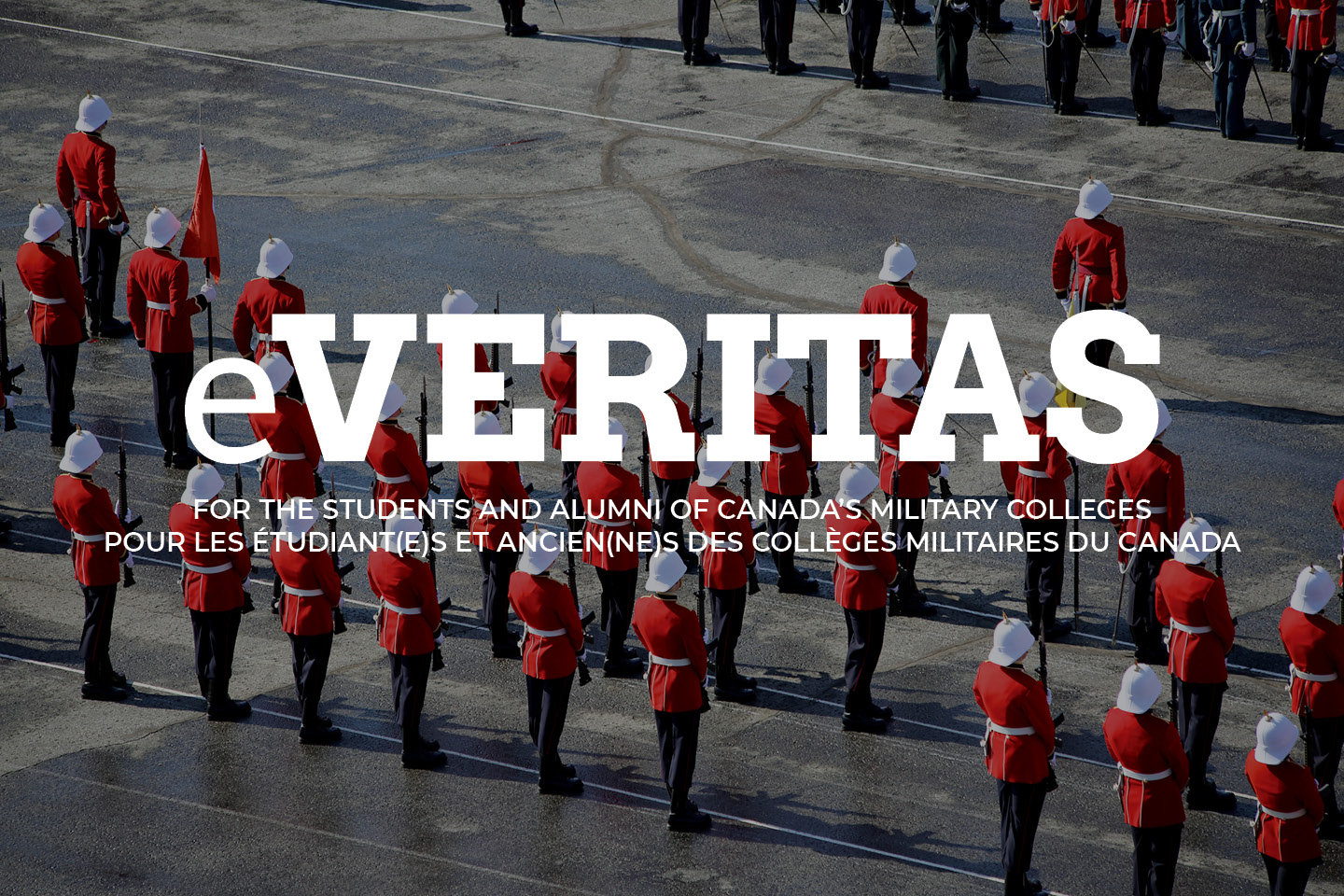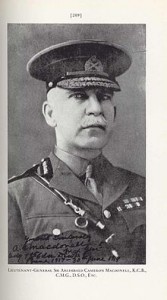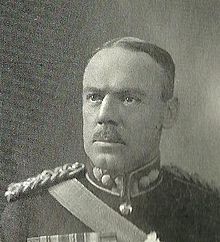
1925: What was going on at RMC 90 Years ago
 The year 1925 was chiefly notable for the change in Commandants at the College. An important event of that kind not only reduces the number of other changes during the period of transition, but also dwarfs their significance. No. 151 Major-General Sir A. C. Macdonell, K.C.B., C.M.G., D.S.O, LL.D., made his last official appearance as Commandant on Graduation Day, 15th June, when announcement was made of his promotion to Lieut.-General on retirement. A farewell dinner had been given by the Senior Staff during the previous week.
The year 1925 was chiefly notable for the change in Commandants at the College. An important event of that kind not only reduces the number of other changes during the period of transition, but also dwarfs their significance. No. 151 Major-General Sir A. C. Macdonell, K.C.B., C.M.G., D.S.O, LL.D., made his last official appearance as Commandant on Graduation Day, 15th June, when announcement was made of his promotion to Lieut.-General on retirement. A farewell dinner had been given by the Senior Staff during the previous week.
General Macdonell had held the appointment for six years, during the aftermath of the First Great War, when it was necessary to bring back method and precision into the life of the College, which had naturally become somewhat disorganized during the War. This transformation could not be effected in a short time and a good deal remained to be done by his successor, No. 621 Colonel-Commandant C.F. Cinstantine, D.S.O. (later Maj-General, C.B., D.S.O), who was appointed Commandant on 1st August and who possessed the requisite youth and energy for this great work.
First Great War, when it was necessary to bring back method and precision into the life of the College, which had naturally become somewhat disorganized during the War. This transformation could not be effected in a short time and a good deal remained to be done by his successor, No. 621 Colonel-Commandant C.F. Cinstantine, D.S.O. (later Maj-General, C.B., D.S.O), who was appointed Commandant on 1st August and who possessed the requisite youth and energy for this great work.
xxxx
MORE…
The diplomas and prizes were presented this year by Maj.-General J. H. MacBrien, C.B., C.M.G., D.S.O., Chief of Staff who had earlier in the year visited the College in order to lecture on Japan. It is interesting to note that the Cadet who won the most prizes was No. 1596 Under Officer G. G. Simonds (later Lieut.-General, C.B., C.B.E., D.S.O.), he carried off the Sword of Honour, the Governor-General’s Silver Medal, the Victor Vander Smissen Prize, and prizes for Artillery, Tactics, Military Subjects, Engineering and Surveying. He was also one of the two to obtain his Diploma with Honours. Another Under Officer was No. 4633 C. Vokes (later Major-General, C.B.E., D.S.O.), who was Captain of the First Football Team.
The annual meeting and dinner of the R.M.C. Club was held this year in Montreal. The dinner, which was attended by 155 ex-cadets, was presided over by No. 155 Brig.-General G. S. Cartwright, C.B., C.M.G., the President. In May the College took part in an Assault at Arms in Toronto; the last time they had visited this city on a similar occasion was 1908. The Advisory Board also met that month at the College under the presidency of General Sir Arthur Currie, G.C.M.G., K.C.G.
In sports we again won the International Hockey Match at West Point, and our second hockey team won the Junior C.I.H.U. Championship. At the end of the year the senior hockey team took part in a series of International Intercollegiate games and Madison Square Gardens, New York, in which we defeated Princeton three to one and lost to Boston College six to seven. It might be mentioned that, at this time, all the College sports were classified onto three groups, which, according to their relative importance, were designated “A”, “B”, and “C”.
The new north wing of Fort Frederick Dormitory was first occupied this year and a new reading and reference room was opened next door to the old Library, on the top flat of the Administrative Building. The Minstrel show, put on in March, first at Rockwood Asylum and then in the college gymnasium, was once again a great success and $135.00 was handed over to charity. The main feature of the show was “Wylde Harold”, a play in verse by No. 870 Major E. H. deL. Greenwood, Staff Adjutant (1919-1924), and the whole performance was again directed by Lt.-Col. (now Major-General) E. J. C. Schmidlin, M.C. Two untoward events occurred this year, the first was a fire in the Riding Establishment in December, and the second one was the death of General Macdonell’s famous old charger “Casey” who died early in the year.
A few minor changes occurred in the curriculum during 1925, The “Summer Reading”, which was not altogether a success, was changed into a directed course of reading during the month of September, when the cadets first returned, and appeared to be more effective in its new guise. Also, for the first six weeks of the term, the recruits were relieved of one hour of physical drill each day, as the amount of time devoted to that exercise seemed to be excessive for youngsters who had a good deal on their minds and on their hands, at the outset of their military career. An outbreak of sickness interfered with the writing of examinations although an effort was made, this year, to distribute the heavy strain of the final examinations by arranging to hold them over a longer period, and by holding only one a day. In addition to the usual Staff Preparatory Course, the Long Course and the Militia Staff Course, there was also in the summer a P.T. Course for ten Warrant Officers and N.C.O.’s of the Permanent Force.

